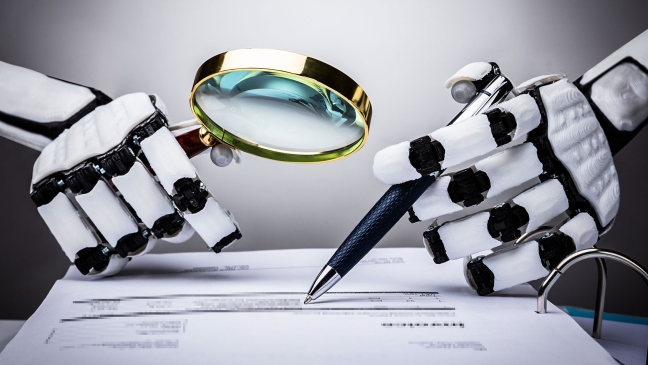I was someone who always wanted to do well at secondary school and when it came to the most important set of assessments so far in my education journey (my GCSEs), I wanted to make sure I came out with the highest grades possible.
I was surrounded by other people who did, too. From staying for interventions to planning study dates with my friends, we would use each other, textbooks and our teachers to expand and widen our knowledge.
Nowhere in these revision sessions did we rely on the comprehension and knowledge of artificial intelligence (AI).
But somehow, teenagers are currently getting a reputation for using AI platforms to cheat and excel, not because of their own intelligence, but down to the advances and power of technology.
Is that fair?
AI in schools
In 2025, the HEPI-Kortext Student Generative AI Survey found that just under half of secondary students (45 per cent) had used AI in some form while at school. But that doesn’t mean they used it to cheat. AI can be used for multiple non-cheating reasons.
In the same way students use textbooks and websites for homework and classwork, they are using AI to gather information and expand their knowledge on a specific topic.
Whether trying to find a timeline for Germany in history or the key quotes in Macbeth, for secondary school students, it is understandable why there is an increase in AI usage.
AI in the workplace
We should want students to be using AI in some capacity, not just because it makes learning easier and faster, but because it will be integral in their adult lives.
According to a 2022 study by the Department for Digital, Culture, Media and Sport, 68 per cent of large companies, 34 per cent of medium-sized companies and 15 per cent of small companies were likely to adopt AI. That is likely now much higher - and increasing rapidly.
But what if, when you give us AI, we all use it to cheat instead?
It should be “safe” to introduce AI in schools without opening the door to mass cheating.
According to Ofqual data, cheating isn’t exactly widespread among my peer group: there were 4,895 cases of malpractice in all GCSE and A-level exams last summer out of around 17 million exam entries.
GCSE and A-level cheating
Of course, a minority of students may use AI to cheat and probably are already. But these are likely to be those students who would already be cheating using whatever method they could find - AI is not creating “new” cheaters.
As with any cheating, the majority of us know the copy-and-paste method students would be using has no benefits whatsoever. We know we wouldn’t be learning the knowledge we would need, and we know we would probably be caught: teachers can now easily detect work generated by AI.
We also know that when the exams roll around, we would be found out again.
Examination rules
In 2024, I sat my GCSEs - a strict set of exams with a strict set of rules and regulations.
Before the exam, our arms were checked for any notes, our water bottles had to be completely clear with no signs of writing and it was essential that our phones were turned off.
I was very aware I would not have the help of AI in the exam hall.
I mean, you could sneak your phone in your pocket and access AI applications by pretending to go to the loo. However, realistically, who is going to attempt that and risk their grades and time to remember that one sentence or one fact?
AI is also restricted in many schools and the internet is not even accessible, so, for most, this couldn’t even happen if they wanted to try it.
Phones and GCSEs
Personally, I never even considered not turning my phone off and putting it anywhere else but my bag and I’m sure most students would do this, too, so as not to jeopardise their results.
The repercussions of falsely accusing young people are incredibly negative.
Imagine you are back sitting your GCSEs again. Think about the work you put in, the hours you spent revising and the determination you had to do well.
And then, imagine after all this effort you put in, others are assuming you just simply “cheated” to achieve these grades.
Student motivation
This is completely unfair and is downgrading the work of students and giving them no credit for the results that they achieved down to pure hard work.
This is teaching students that no matter how much they try and work, it will not be recognised, only discouraging students from wanting to do well.
By believing and deeming students as cheaters, we are endangering their chances of continuing this hard work and progressing, as they will think: why bother?
AI is only becoming more powerful, but so is the knowledge of schools and examiners. The chances of students being able to get away with cheating, combined with the desire of actually wanting to cheat, make the stereotype of deeming students as “cheaters” inappropriate and untrue.
If looking at facts and expanding our knowledge is cheating, then surely, we are all “cheaters”?
Harriet Joslin is studying for her A levels in the south of England
For the latest education news and analysis delivered every weekday morning, sign up for the Tes Daily newsletter





